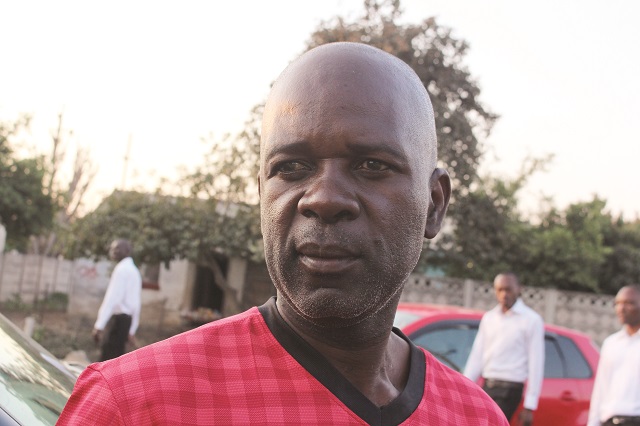Causes of suicide and its prevention
Pastor Tawanda Mvere, Health Matters
World Suicide Prevention Day is observed on September 10 each year to promote global action to prevent suicides.
As we observe this day tomorrow we want to look at some of the causes of suicide and how it can be prevented. It is a major preventable cause of premature death.
Suicide is the act of deliberately killing oneself or, more specifically, an act deliberately initiated and performed by the person concerned in the full knowledge, or expectation, of its fatal outcome.
It is a tragic act with strong emotional repercussions for its survivors and for families of its victims. Suicide should be prevented at all cost.
Suicide is no small issue. The World Health Organisation (WHO) states that “worldwide, suicide is among the top five causes of mortality in the 15- to 19-year age group and in many countries it ranks first or second as a cause of death among both boys and girls in this age group.
“More than 44 000 people in the US killed themselves in 2015, according to the Centre for Disease Control and Prevention, making it the 10th leading cause of death overall.”
In Zimbabwe cases of suicide are on the rise, which is alarming and a major cause for concern for society as more young people continue to prematurely end their lives. A lot of reports have been shared of students from various universities in the country ending their lives through suicide.
In 2015 a then 21-year-old, third year Electrical Engineering student at the University of Zimbabwe recorded on video how his estate should be distributed, demanded that his body be cremated and sent messages to his friends announcing his death before committing suicide.
Statistics shared on New Ziana revealed that at least 489 men committed suicide in 2016 compared to 348 in 2015 while 147 women committed suicide in 2016 compared to 126 in 2015.
There is however no single cause to suicide. It often occurs when stressors exceed current coping abilities of someone suffering from a mental health condition such as depression, stress or substance abuse disorders.
Suicide in Zimbabwe has been largely attributed to economic challenges and marital conflicts usually associated with infidelity.
Police reports indicate that most suicide cases among men are tied to stress associated with failure to meet society’s expectations to fend for the family, while top on the list for women committing suicide was related to infidelity. The most common form of suicide is food poisoning and hanging.
Experts say there are two major factors involved in suicide attempts. The first factor is a desire for death and the second is acquired capability. Desire for death occurs through ideations which are ideas of thwarted belongingness. It is described as feeling alienated from others emotionally and perceived burdensomeness.
It is feelings of incompetence and therefore a burden to others. Acquired capability on the other hand is used because people naturally fear death and painful experiences.
The capability to carry out the suicide attempt is usually formed from emotional and physical pain acquired through previous suicide attempts (self-directed violence), rehearsing suicide through behaviour or imagery, and getting used to painful or dangerous experiences in other ways.
Individuals who are suicidal usually have extreme narrowness of viewpoint about the situation they are going through and consider permanence of suicide as easy way out of a difficult situation.
Individuals who have greater self control, greater self efficacy and more adaptive coping skills are at less risk. Those who are hopeful, having future plans or events to look forward to, and having satisfaction in life have normalised protective factors against suicide.
Suicide can be prevented. Direct strategies can be used to prevent suicide such as stopping an impending suicide.
Other methods include treating the psychological symptoms of depression, improving coping strategies of persons who would otherwise seriously consider suicide and reducing prevalence of conditions believed to constitute risk factors for suicide. There are suicide warning signs such as suicide gesture and suicidal desire which is a vague wish for death without any actual intent to kill one self.
Some people who have committed suicide have been known to have mentioned their intention to someone before. Suicide prevention strategies focus on reducing the risk factors and intervening strategically to reduce the level of risk. Risk and protective factors, unique to the individual can be assessed by a qualified mental health professional.
Some of the specific strategies used to address are:
-Crisis intervention.
-Structured counselling and psychotherapy.
-Hospitalisation for those with low adherence to collaboration for help and those who require monitoring and secondary symptom treatment.
-Supportive therapy like substance abuse treatment, family psycho education and access to emergency phone call care with emergency rooms, suicide prevention hotlines
-Restricting access to lethality of suicide means through policies and laws.
-Person-centred life skills training, for example problem solving.
-Registering with support groups like Alcoholics Anonymous, religious groups
-Therapeutic recreational therapy that improves mood.
-Motivating self-care activities like physical exercises and meditative relaxation.
A very effective way to assess suicidal thoughts is to talk with a person directly, to ask about depression, and assess suicide plans as to how and when it might be attempted.
Talking with people about suicide does not plant the idea in their heads, however such discussions and questions should be asked with care, concern and compassion.
The idea is to reduce sadness and provide assurance that other people care. It is advised not to say everything will be alright nor make the problem seem trivial, nor give false assurances about serious issues. Discussions should be gradual and specifically executed when the person is comfortable about discussing his or her feelings.
Another method of reducing suicide is reducing access to convenient means of suicide and methods of self-harm like toxic substances, poisons, handguns and reducing the quantity of dosages supplied in packages of non-prescription medicines.
You can help someone to prevent a suicide by not keeping quiet about your suspicions. Tell someone, if it’s at school or university tell a teacher or lecturer. Help them to seek professional help from a counsellor, psychologist, family or church leader.
Suicide is preventable.
-Pastor Tawanda Mvere is the executive director of Christian Counselling and Depression Trust and Senior Pastor at Abounding Grace Ministries International. Christian Counselling and Depression Trust is a non-profit making organisation based in Bulawayo, whose primary purpose is to raise awareness on mental health disorders as well as provide Christian counselling. For further information contact him on 0733 207 898 or email [email protected]












Comments